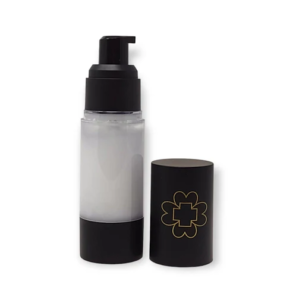How to Help a Loved One Who’s in Denial About Their Addiction
Dealing with a loved one who’s in denial about their addiction can be an emotionally taxing and complex challenge. Denial often acts as a shield that prevents individuals from confronting the reality of their situation, making it difficult for them to seek help. However, with the right approach, patience, and support, you can encourage them to acknowledge their addiction and take steps toward recovery. Here’s a guide to help you navigate this delicate situation effectively.
Understanding Denial in Addiction
Denial is a common psychological defense mechanism used to avoid confronting painful truths. For individuals struggling with addiction, admitting there’s a problem can be overwhelming due to shame, fear, or a sense of helplessness. Recognizing that denial is a part of the addiction cycle can help you approach the situation with empathy rather than frustration.
Educate Yourself About Addiction
Before approaching your loved one, it’s essential to educate yourself about addiction and its effects. Understanding the physical, emotional, and psychological aspects of addiction will help you communicate more effectively and empathize with their struggles. Additionally, learning about the resources available, such as a rehab centre in Delhi, will enable you to provide informed suggestions when the time is right.
Approach with Compassion and Patience
When initiating a conversation about their addiction, it’s crucial to approach with compassion and patience. Accusations or confrontations can cause them to shut down or become defensive. Instead, use “I” statements to express your concerns, such as, “I’ve noticed some changes in your behavior, and I’m worried about you.” This approach reduces the likelihood of them feeling attacked and opens the door for a constructive dialogue.
Avoid Enabling Behaviors
Enabling occurs when you unintentionally support your loved one’s addiction by minimizing its consequences or covering up their behavior. Examples of enabling include providing financial support, making excuses for their actions, or neglecting to set boundaries. By refraining from enabling, you create an environment where they must face the reality of their addiction.
Encourage Professional Help
Convincing a loved one to seek professional help can be challenging, especially when they’re in denial. Gently suggest the idea of consulting a counselor or addiction specialist who can provide an unbiased perspective. Highlight the benefits of seeking help from a rehabilitation centre in Delhi, where they can receive comprehensive care tailored to their needs.
Rehabilitation centers offer a structured and supportive environment for individuals to address their addiction. Mentioning specific programs or facilities can make the idea of seeking help feel more tangible and less intimidating.
Leverage the Support of Others
Sometimes, hearing concerns from multiple people can have a greater impact. Organize a group of close friends or family members who share your concerns to approach your loved one together. This method, often referred to as an intervention, should be planned carefully and executed with sensitivity to avoid alienating them further.
Be Prepared for Resistance
It’s important to prepare yourself for resistance or denial during these conversations. Your loved one may downplay the severity of their addiction, blame external factors, or refuse to discuss the topic altogether. While this can be disheartening, remember that denial is a natural reaction, and breaking through it often requires persistence and time.
Focus on Specific Behaviors and Consequences
When discussing their addiction, focus on specific behaviors and their consequences rather than generalizations or moral judgments. For example, instead of saying, “You’re ruining your life,” say, “I’m concerned because you’ve missed work several times due to drinking.” This approach helps them see the tangible impact of their actions.
Set Healthy Boundaries
Setting and maintaining boundaries is essential for your well-being and their recovery. Clearly communicate what behaviors you will and will not tolerate. For example, you might decide not to lend money or cover for them if their addiction affects their responsibilities. Boundaries help protect you from burnout while encouraging them to take responsibility for their actions.
Seek Support for Yourself
Supporting a loved one through addiction can be emotionally draining, and it’s important to take care of yourself during this process. Consider joining a support group for families of individuals struggling with addiction, such as Al-Anon or Nar-Anon. These groups provide a safe space to share your experiences and gain insights from others facing similar challenges.
Stay Hopeful and Persistent
Recovery is a journey, and denial is often just the first hurdle. While it’s easy to feel discouraged, staying hopeful and persistent can make a difference. Celebrate small victories and remind your loved one that help is available whenever they’re ready to take the first step.
Conclusion
Helping a loved one in denial about their addiction requires empathy, patience, and a strategic approach. By educating yourself, setting boundaries, and encouraging professional help, such as services from a rehab centre in Delhi, you can support them in their journey toward recovery. Remember, change takes time, and your unwavering support can be a beacon of hope as they navigate their path to sobriety.














Post Comment